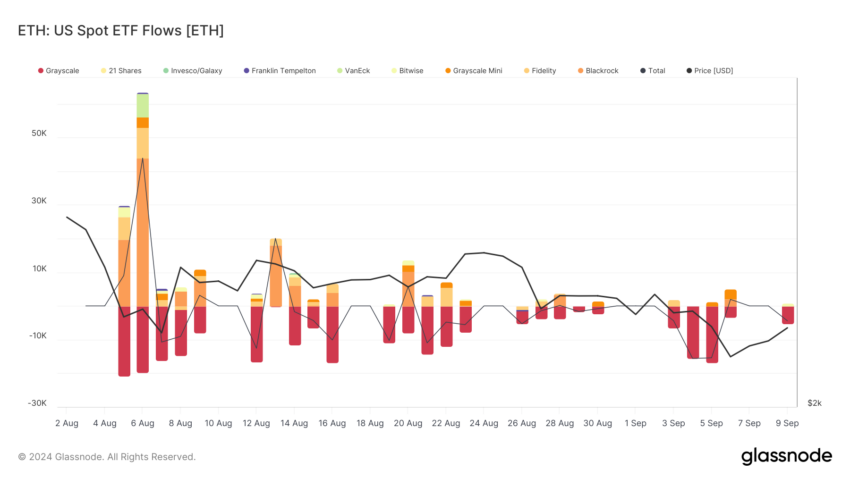After Spot exchange-traded funds (ETFs) for both Bitcoin and Ethereum were finally approved in the US this year, many in the industry are openly wondering whether Solana will be next.
Brazil’s Solana Spot ETF will provide an interesting test case for its viability in US markets.
2024: An ETF Bonanza
2024 has been a pivotal year for ETFs in the cryptoasset industry. The SEC made headlines worldwide when it announced Bitcoin ETF’s approval in January. The subsequent events led to a historic rally in Bitcoin’s price, multibillion-dollar trades in these new assets, and permanent changes in the entire industry.
Several months later, the SEC approved the second major spot ETF, this time based on Ethereum. By then, the SEC was no trailblazer, as jurisdictions abroad had already approved similar products months prior. A total taboo just a year ago had suddenly turned into open season. In this environment, the community began asking: which cryptocurrency will win approval next?
One possible candidate that experts point to is Solana, a blockchain platform and the fifth-largest cryptoasset by market cap. Solana first went public in 2020, offering a proof-of-stake model and a smart contract system similar to Ethereum’s. Solana is seen as more likely than any other asset for fairly clear reasons.
The Steps to Success
A key issue in past ETF legal battles has been Bitcoin and Ethereum’s legal status: Are they commodities or securities? If a corporate entity can meddle with a coin’s price, what chaos could that create for an ETF? The ETF is already a security, and it simply wouldn’t work to build security around a security-type coin.
The SEC considers a spot ETF the gold standard for regulatory approval—something that investors of all sizes can trust. It would never approve one around an asset with an obvious backdoor. Tether, as a stablecoin, will always be open to direct management from its issuers. Binance controls BNB, and US regulators have ample reason to distrust it.
In short, these controllers could deliberately sink or float an asset, wreaking havoc on US finance. In contrast, Solana seems as qualified to be an ETF as Ethereum was, with its formidable market cap promising higher investor demand than smaller assets.
Read more: Solana ETF Explained: What It Is and How It Works
Brazil has wholeheartedly accepted this logic, approving the first Solana ETF in late August. The nation’s securities regulator (CVM) made a second approval just days later.
Despite this positive sign, another possible setback has emerged. While Bitcoin’s ETF saw explosive growth, Ethereum’s has been disappointing. Ethereum products have seen outflows of $458 million since their launch, but these losses coincided with a bullish market for their counterparts. If Ethereum’s ETFs are struggling, why would a smaller cousin like Solana fare better?

These market trends add context to the SEC’s rejection of CBOE’s attempt to secure a Solana ETF. Eric Balchunas, a Bloomberg analyst and ETF expert, said that Solana’s ETF has “a snowball’s chance in hell of approval unless there’s a change in leadership.” He also noted that CBOE’s 19b-4 filings had already vanished from the SEC’s site.
In the Bitcoin ETF race, the SEC had a hard deadline to rule at each step. But as Balchunas pointed out, the SEC shot down the Solana ETF before these deadlines could even begin.
Next Steps, or Long Shots?
Despite these pessimistic predictions, all hope is not lost. CBOE filed these requests on behalf of two potential issuers: VanEck and 21Shares. For VanEck, this harsh rejection is seen as only a temporary setback. Matthew Sigel, the firm’s Head of Digital Assets Research, believes in Solana’s ETF eligibility.
Sigel has drawn attention to a narrow legal precedent: a 2018 court case between the CFTC and My Big Coin, a now-defunct token issuer. In this case, the CFTC successfully argued that the token was a commodity-type asset. If this 2018 standard is applied to Solana, it would qualify as a commodity, making it eligible for a Spot ETF.
However, Sigel’s argument could be seen as narrow and self-serving. VanEck may be willing to fight for its ETF, but it’ll need more to win. Nate Geraci, President of ETFStore, suggested two major factors could turn the tide: approval of a Solana futures ETF, which has fewer restrictions than a spot ETF, or a comprehensive reform of crypto’s regulatory framework from Congress. If either happens, the dynamics could change dramatically.
For now, the Solana ETF seems the most likely candidate, but it still faces a long road ahead. 2024 is an election year, and both parties are courting crypto enthusiasts with promises of friendly regulation. Even if favorable outcomes emerge from the elections, regulatory reforms will still take time. Approval by the end of 2024 seems unlikely, and political changes are unlikely to speed up the process.
Read more: Solana (SOL) Price Prediction 2024/2025/2030
The clearer path for Solana, at least for now, seems to be in a Futures ETF, which would be regulated by the CFTC instead of the SEC, as the former is known for having lighter standards. If Solana is classified as a commodity, as Sigel and VanEck argue, the CFTC could regulate its futures ETF.
Solana ETF proponents are right to be excited about Brazil’s recent approval, and investors should closely monitor this asset’s performance. However, the SEC is unlikely to green-light a spot ETF in the US based on Brazil’s success alone. Even if Brazil’s Solana ETF performs exceptionally well, the chances of immediate approval in the US remain slim.
In summary, is a Solana ETF likely to happen in the next few months? No. Is the fight to make it happen winnable? Absolutely. This community has overcome challenges before, and while the road ahead may be bumpy, it is still open.
Disclaimer
In adherence to the Trust Project guidelines, BeInCrypto is committed to unbiased, transparent reporting. This news article aims to provide accurate, timely information. However, readers are advised to verify facts independently and consult with a professional before making any decisions based on this content. Please note that our Terms and Conditions, Privacy Policy, and Disclaimers have been updated.


